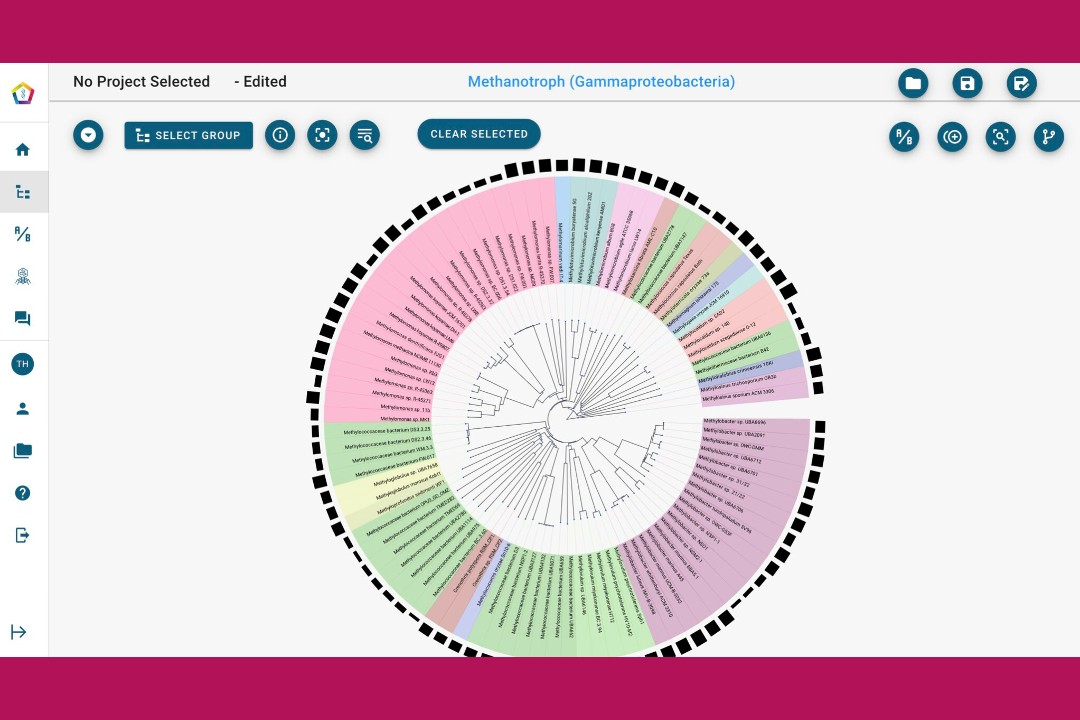An Edmonton-based company is seeking a $1.5 million investment to commercialize its process to engineer bacteria to transform waste methane into greener jet fuel.
SynBioBlox, the most recent endeavour from the team at the Bio-Conversion Databank Foundation (BioDF), applies information derived from the foundation's AI-powered Maximizer platform to figure out what bacteria to use and how best to modify them genetically to turn greenhouse gases into useful products.
"It's a big, slow, ponderous process," SynBioBlox and BioDF CEO John McDougall said of typical bio-conversion. "We want to speed it up, and to do that we want to take the best elements out of organisms and put them together to do what you want, and do it really efficiently and with high productivity."
SynBioBlox genetically engineers organisms called methanotrophs, which occur in nature, to make them more efficient at recycling methane back into the environment. Gene-editing technology like CRISPR allows for the "grafting" of desirable traits onto the organisms.
Turning methane into sustainable aviation fuel (SAF) is an attractive application because methane drives climate change even more than carbon dioxide and a lot of it is currently going to waste.
"If you're going for methane, for example, you go to things like sewage treatment plants, to landfills to places like that, where essentially, nothing gets produced, and they typically burn it or just exhausted," McDougall told Taproot. "So if we can take that over, then essentially, you've got a relatively cheap source of supply, and that gives you a great advantage."

This is an example of the kind of information visualized and delivered within Maximizer, the Bio-Conversion Databank Foundation's portal to support synthetic biology, which SynBioBlox uses. (BioDF/LinkedIn)
SynBioBlox has already digitally designed its methane-eating organism and is currently physically creating it in the lab, a process that would have taken years and cost significantly more without the use of tools like Maximizer.
"Now we get into the more expensive part, where you're actually having to work in the laboratory as well, but the acceleration of the process and the cost reduction is actually quite amazing in terms of what's been achieved," McDougall said.
BioDF is a non-profit organization founded in December 2019 to use artificial intelligence and machine learning tools to help researchers identify, catalogue, and analyze biological samples, evaluate bio-conversion opportunities, and optimize biological processes. With support from the University of Alberta and Alberta Innovates, it launched the Maximizer portal in 2021 to make that information accessible and useful.
Maximizer uses AI to retrieve the data efficiently, validate it, and predict the behaviour of the organisms, BioDF's Dominic Sauvageau told Health Cities Talks in 2021. It also facilitates collaboration, he said.
"A big part of the BioDF platform is actually in creating and facilitating the engagement of communities. So the users are very much invited to provide their own information to help in the validation of the information as well, to really be fully engaged in the evolution of the platform," he said.
The team behind BioDF incorporated SynBioBlox in 2021 to apply the kind of information made available through Maximizer to commercial uses. The company plans to absorb one billion tonnes of greenhouse gases per year through its synthetic biology products, and the investment would cover the costs of production to get there more quickly.
"In my opinion, biology is going to be the source of the future of the world," said McDougall. "There's really no other way, I think, to do this."
